
Get ready to tighten your belts as Deputy Prime Minister and Minister for Finance, Professor Biman Prasad has announced some stringent measures in the 2023/2024 National Budget which includes increase in VAT to 15 percent for those items that are not zero rated, other increases and decreases in duties - and with a stern message that we have to take the medicine now and address our debt situation which stands at $10 billion.
Effective from 1st August 2023, there will only be 2 rates of VAT.
The 21 items on zero VAT will continue.
They have added prescribed medicines to the list to make it 22 items. The items on zero VAT will include, flour, rice, sugar, canned fish, cooking oil, potato, onion, garlic, baby milk, powdered milk, liquid milk, dhal, tea, salt, soap, soap powder, toilet paper, sanitary pads, toothpaste, kerosene, cooking gas and prescribed medicines.
However the supply of all other goods and services, effective from 1st August 2023 will attract a VAT rate of 15 percent. These measures will generate additional net VAT collections estimated at about $446 million for Government.
Professor Prasad says they are going to increase the excise tax on alcohol and tobacco by 5 percent while the excise on carbonated/ sugar-sweetened beverages will be increased from 35 cents per litre to 40 cents per litre.
To curb NCDs and promote healthy living, a domestic excise of 40 cents per kilogram or per litre and import excise of 15 percent will be introduced on juice (carbonated drinks, Frubu, Tampico, Pulpy, Just Juice and Marigold), ice cream, sweet biscuits, snacks, and sugar confectionery.
Government will reduce fiscal duty from 32 percent to 15 percent on canned mackerel (except canned tuna), corned mutton, corned beef and beef products, canned tomatoes, prawns and duck meat.
Fiscal duty on sheep/lamb meats will be reduced to zero. Beef meat the duty is being reduced from 32 percent to 15 percent.
Government will also reduce import excise on chicken portions such as wings, drumstick, legs, feet, thighs, etc from 15 percent to 0 percent.
Motor vehicle import excise duty will increase on all new and used passenger vehicle by an additional 5 percent.
The concession on smartphones will be removed and replaced with a fiscal duty of 5 percent.

The corporate tax rate will increase from the current 20 percent to 25 percent.
New companies eligible for reduced corporate tax for listing on the South Pacific Stock Exchange will have their tax rate increased from the current 10 percent to 15 percent. This will be for new companies and only for a period of 7 years.
These corporate tax rate increases will add about $73.5 million in revenue.
Departure Tax will increase from the current $100 to $125 effective from 1st August 2023 and will further increase by an additional $15 to $140 effective from 1st January 2024. This will add a total of $30 million towards overall tax revenues.
He says the Social Responsibility Tax will be simplified by merging it with the PAYE structure, along with a 5-percentage points reduction on each band, for those earning above $270,000, effective from 1st January 2024. This would mean that the maximum marginal tax rate will be reduced from the current 44 percent to 39 percent.
Customs concession code 236 which currently allows all manufacturers to access duty free raw materials and other machinery and equipment, will have the concession rate increased from zero percent to 3 percent.
Concession code 231 which is available to manufacturers for import of packaging products, that concessionary rate will also be increased from zero to 3 percent.
Code 235 allows hotels and resorts to import building materials, furnishings and fittings, room amenities, kitchen and dining room equipment, utensils and outdoor equipment all duty-free. The government will increase the fiscal duty on this concession from 0 to 3 percent.
Concession code 117 (iii) which allows for a reduced duty of 10 cents per litre of fuel for hotels, manufacturers, cruise vessels and mining companies will be removed and a normal rate of 20 cents per litre on diesel will apply.
Professor Prasad says the random change to the capital gains tax regime by the previous government, designed to help a specific set of special taxpayers, ended up costing the Government almost $70 million in lost revenue. He says they are now going to right this wrong and remove this exemption.
They are also restructuring the ICT incentive to tighten the definition and eligibility criteria and align the maximum tax holiday period to 13 years in line with other incentives.
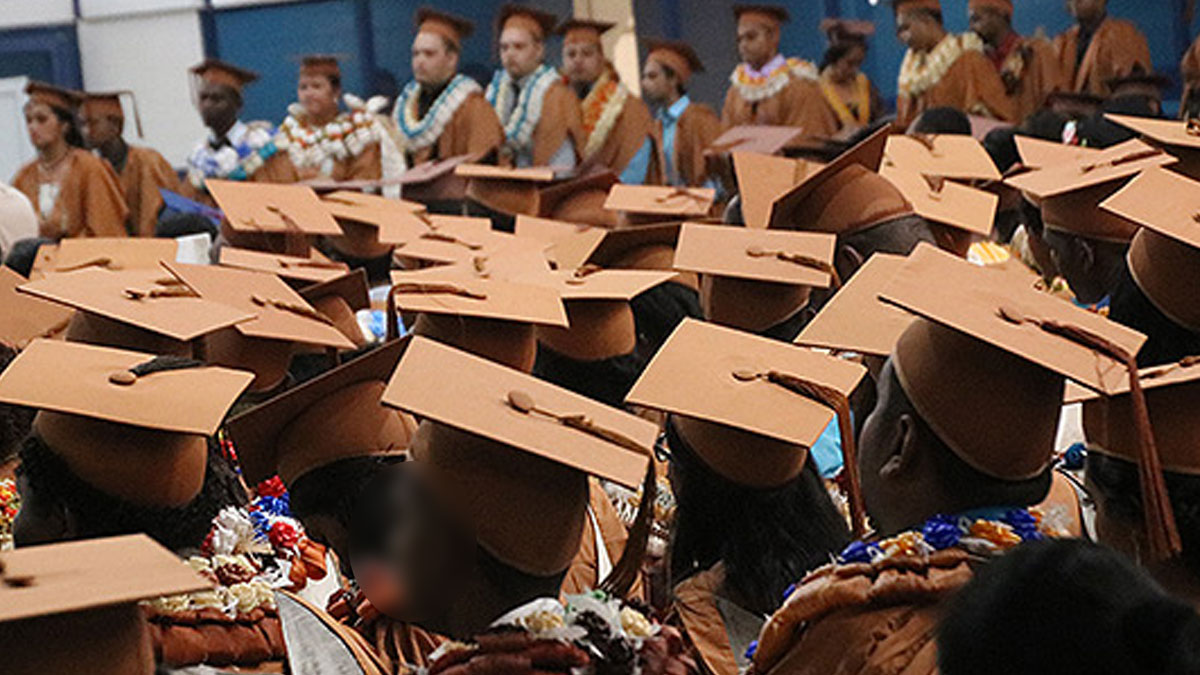
The $650 million TELS debt will be forgiven and graduates will have to enter into a bond service which will be years of study multiplied by 1.5.
While announcing this in the 2023/2024 National Budget, Finance Minister, Professor Biman Prasad says those who choose not to serve the bond will have to pay the equivalent cost amount.
Moving forward, the government will provide all eligible students with scholarships under the rebranded Fijian Scholarship Scheme with a total budget of $148.2 million in this Budget.
The Fijian Scholarship Scheme funds will be used to sponsor 10,920 new students (inclusive of study grants), and fund 9,148 existing students.
The new scholarship schemes will replace study loans.
The Scholarship for Higher Education – Level 7 Local Scheme with Minimum Cut Off Mark Scheme will phase out TELS for degree Scheme.
The cut-off mark will be 250, while 245 will be for rural and maritime students. The cut-off mark for Commerce will be 280, and for Engineering at 300. These cut-off marks have been set based on the labour market needs, university enrolment capacities and the need to maintain tertiary education quality. The Skills Qualification Based on Offer Letter Scheme will phase out TELS for Skills Qualification Scheme at the Fiji National University.
Government will offer funding for Technical Vocational Education and Training (TVET) to other providers in areas of national priority. The bonding arrangement will be same as scholarships for Higher Education - Level 7 Scheme.
The Tuition Only Hardship Assistance Scheme for Private Students is a new scheme aimed to assist students enrolled in degree programmes from the second year onwards with a Grade Point Average of 65 percent. Students qualifying for this scheme will be bonded and should not have a combined parental income or business net-worth of more than $100,000, unless allowed via means testing.
The Scheme will have 2,600 awards, while 250 awards is ringfenced for MBBS.
The National Toppers Scholarships will be renamed to Merit-based Scholarships.
Given the challenges faced by rural and maritime schools, Government intends to build equity through merit-based Higher Education Level 7 Local Scholarship Scheme; merit-based Skills Qualification Scholarship Scheme; and Higher Education Level 7 with Minimum Cut-Off Mark Scheme.
Students in schools classified as rural and maritime will have a lower cut-off mark of 320 compared to the cut-off mark of 330 for non-rural and non-maritime schools.
The bonding for the new students under this scheme will be years of study multiplied by 1.5 times if tuition only and years of study multiplied by 2 times if tuition and allowance is paid.
Effective from 1st January 2024, all students under scholarships other than merit-based will receive $2,500 per semester if they study at campus away from home, $1,500 for home-based campuses. In terms of allowances, students under merit-based scholarships will be eligible for $3,400 per semester.
The full details and eligibility and the selection criteria handbook will be published by TSLS soon.
A new initiative by the Coalition Government will set aside 3 PhDs, and 5 Masters by Research awards for study at New Zealand Universities.
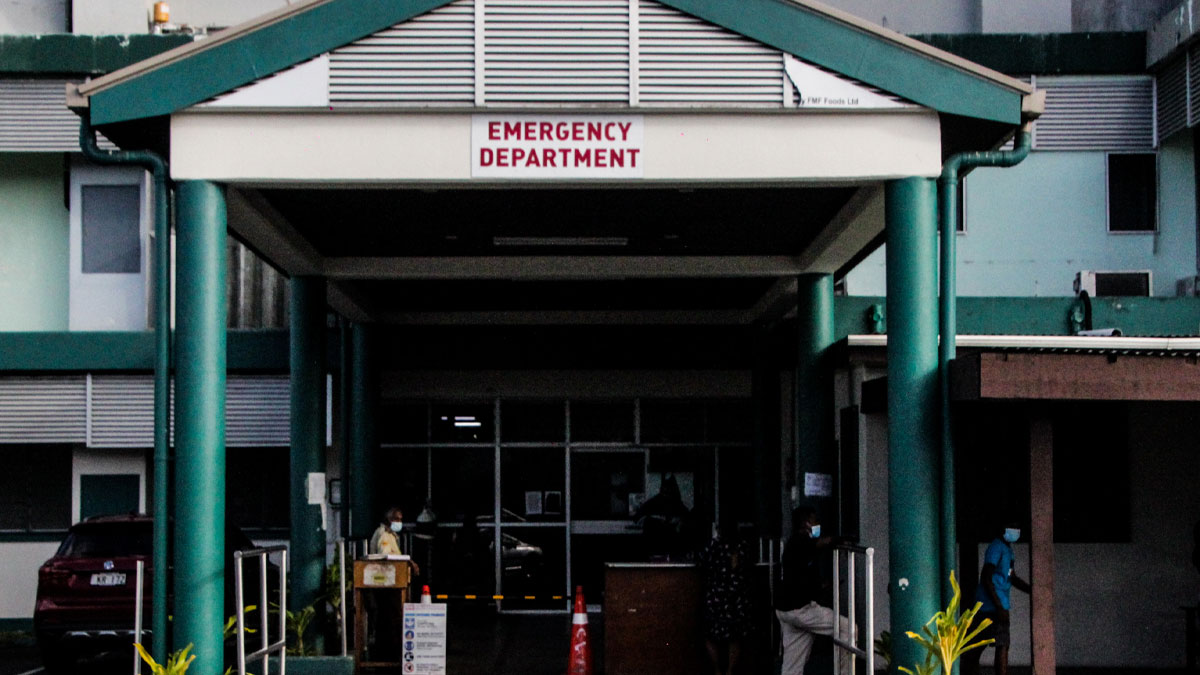
It is going to be a difficult task but we have clearly put our focus on the maintenance of our existing infrastructure, and overall improvements in service delivery.
Deputy Prime Minister and Minister for Finance Professor Biman Prasad stated this during his delivery of the 2023/202 National Budget adding the delivery of health services in Fiji has been far from satisfactory and our public health facilities are in a state of decay.
He says over the years there has been a complete lack of investment in improving the infrastructure of not only in the country’s largest hospitals CWM and Lautoka, but all across our health facilities in Fiji.
Professor Prasad further says he has stated this publicly and there is no denying that we have never had such bad health services in the independent history of our nation.
He says they are going to give this the highest priority not only in this budget but also in all their future budgets.
Professsor Prasad says the Ministry of Health and Medical Services has been allocated a budget of $453.8 million, this is a significant increase of $58.7 million from this year.
He says the salaries and wages budget for the Ministry have increased to $126.4 million.
The Deputy Prime Minister further says they are providing $11.6 million for the upgrade of nurses salaries and overtime.
Prof. Prasad says this is to cater for the 250 Intern Nurses to move up to become registered Nurses, 237 new Intern Nurses, 46 Nursing Assistants, 50 Nursing Aides, 40 Midwives, 94 Medical Laboratory scientists and additional support staff in various hospitals and non-medical officers for the Fiji Pharmaceutical & Biomedical Services to strengthen capacity and improve procurement efficiency.
He further says these additional positions will help improve the service gaps and address the current capacity needs within the Ministry.
The Deputy Prime Minister says the nursing assistant and nurse aide positions have been created to support our nurses focus on their core role, where these aides and assistants will take over the non-clinical responsibilities like making the bed, getting the consumables, and other time consuming tasks that used to keep the nurses occupied.
He further says they are providing over $63 million for public health programmes, Emergency Radiology and Laboratory Services, procurement of drugs, consumables, medicines, and purchase of bio-medical equipment and accessories.
Prof. Prasad says they are working together with the Ministry of Health to ensure the timely and efficient procurement of the drugs, consumables and biomedical equipment accessories.
He further says a sum of $2.5 million is allocated for the Kidney Dialysis Treatment Subsidy.
The Deputy Prime Minister says the allocation has been increased by $1.0 million from this year’s level to cater for the increase in the dialysis subsidy from the current $150 per session to $180.
He further says a sum of $16.4 million is allocated for the upgrade and maintenance of urban hospitals and institutional quarters, permanent walkway for the maternity hospital at CWM, purchase, installation and replacement of ICT equipment, and a major interior upgrade of Labasa hospital.
Prof. Prasad says the Ministry of Finance through the Strategic Planning Office will work very closely with Ministry of Health and Ministry of Public Works to ensure efficient and timely maintenance of our hospitals and health centres as this has been a major problem as well as assist in the strengthening of the asset management unit of Ministry of Health.
He further says they cannot build new hospitals or health centres if they are not able to maintain what they have right now.
The Finance Minister says some of the hospitals and health centres do not need large amounts of money to upgrade. Some simply need a few window louvres, the replacement of missing tiles, painting, roof repairs, fixing of doors and mosquito netting on windows.
He says they can easily do this.
The Deputy Prime Minister further says the previous Government had tried to expand the coverage of healthcare services through an outsourcing model to engage the service of private general practitioner’s dental operators and medical laboratories during the pandemic.
He says from 1st August 2023, only patients with a combined household income of $30,000 or less per annum can qualify for the free services at the private practitioners.
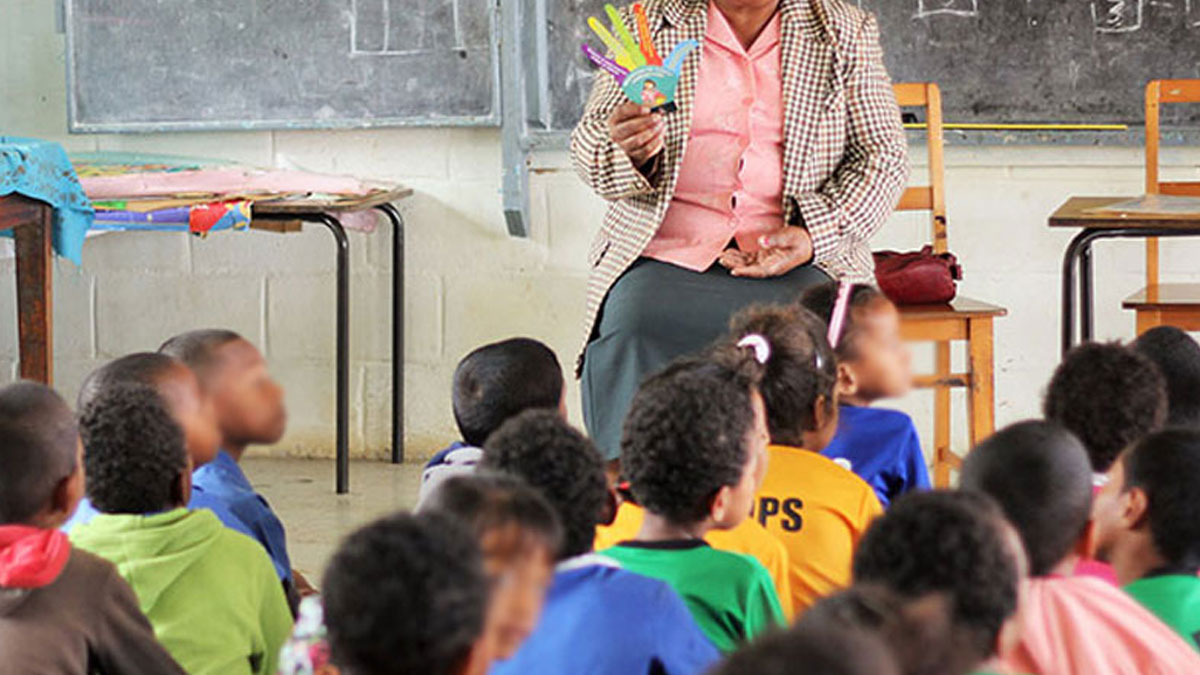
Free education and transport assistance for Early Childhood Education, primary and secondary school students will continue with a total funding allocation of more than $100 million.
Deputy Prime Minister and Minister for Finance, Professor Biman Prasad says $45 million has been allocated to continue the ‘Back to School Support’ of $200 per child for students from early childhood to Year 13 for the school year 2024.
This will benefit over 230,000 students for families with less than $50,000 household income.
The education sector is given the highest allocation in this budget to a tune of $845 million.
The salaries and wages budget for the Ministry has been increased from $318.1 million to $322.6 million to cater for the funding for the more than 14,000 existing teachers and newly established 179 new teaching and non-teaching positions at the Ministry of Education.
$8.9 million is allocated for salary upgrade of teachers who have completed relevant qualifications to move to a higher band in line with the Teacher Remuneration Setting Policy.
Funding is also provided to Corpus Christi, Fulton College, Montfort Technical Institute, Monfort Boys Town, and Vivekananda Technical Centre.
USP will receive a total funding of $53.5 million.
The Fiji National University will be provided a funding grant of $43.4 million, University of Fiji is provided an increased grant of $2.8 million while the newly established Pacific Polytech will receive a funding grant of $1.0 million and Sangam Institute of Technology has its grant increased from $114,000 to $614,000.
On technical education which has been neglected over the past years and the huge skills gap with people leaving our shores, Professor Prasad says they are now going to invest in this and work together with existing service providers, including the newly established Pacific Polytech.
The government plans to revamp the apprenticeship scheme in the next few months and also review the NTPC levy and how best to support and fund skill upgrades in the workforce.
Professor Prasad says the employers have been suffering from this and the previous Government’s hasty decision to remove the NTPC levy.
$49 million is allocated for the overall maintenance and upgrade of schools including the construction of TC Yasa affected schools and staff quarters in Vanua Levu.
The Australian Government has provided $30 million towards this.
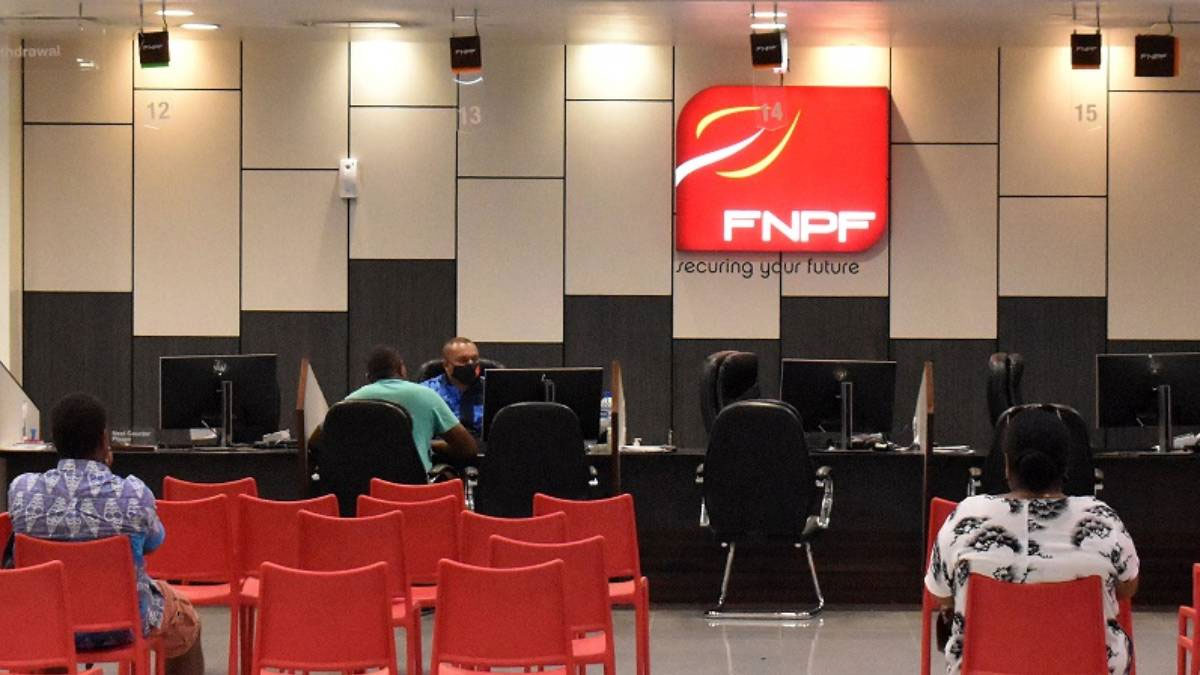
People at the age of 70 years and above, who are on the social pension system, will receive a 25% increase in allowances while those between 65 to 69 years will receive a 15% increase.
This means that the monthly allowance will increase from $100 to $125 a month effective August 2023. Those between the age of 65 to 69 years will have their monthly allowances increased from $100 to $115.
Effective from August 2023, the 1,500 FNPF pensioners who had their pension rates reduced by the military regime will also be able to access the Government social pension allowance of $125 if they are above the age of 70 or $115 if they are between 60 to 69 years.
FNPF will work together with Government to identify and put these pensioners on the social pension scheme, on top of what they receive from their current reduced FNPF pensions.
The social pension scheme is allocated a large budget of $78.2 million, an increase of $23.2 million to cater for the needs of 54,200 senior citizens.
While delivering the 2023/2024 National Budget, Deputy Prime Minister and Minister for Finance, Professor Biman Prasad says the funding allocation for the Ministry of Women, Children and Social Protection is increased from $147.7 million to $200.2 million. This is a major increase of $52.5 million.
$100,000 is allocated to cater for the establishment of a new Department of Children.
$19.9 million has been allocated for the Child Protection Allowance. This is an increase of $6.2 million.
To support the poor and disadvantaged, a sum of $45.6 million is allocated for the Family Assistance Scheme, whereby monthly cash transfers will increase by 15 percent per month and the existing $50 food voucher programme will continue in the next financial year.
The revised monthly allowance rate for the Family Assistance Scheme is 1 person household allowance will increase from $35.00 to $40.25; 2 persons household allowance will increase from $58.00 to $66.70; 3 persons household allowance will increase from $92.00 to $105.08; and 4 persons household allowance will increase from $127.00 to $146.05.
$43 million is allocated to cater for disability allowance, bus fare subsidy for elderly and disabled, electricity subsidy to households below $30,000 income and insurance for social welfare recipients.
$500,000 is allocated for the Women’s Plan of Action and a further allocation of $200,000 is provided to support women's organizations for their advocacy work.
Meanwhile we have received confirmation that the government bus fare subsidy of 10 percent will end which means bus fare is likely to increase.
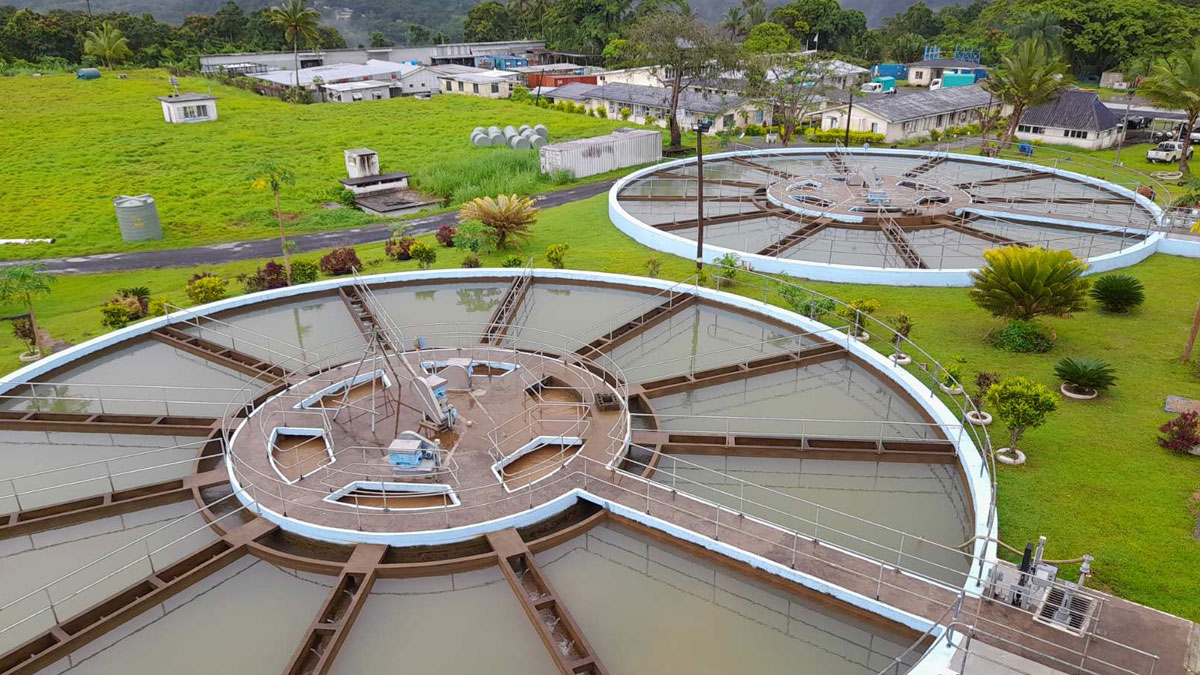
Minister for Finance Professor Biman Prasad says the Rewa River Viria Water project has been a major investment and we will see major improvements in water supply after the full commissioning of the project.
He says the project is expected to be completed by the end of July with full commissioning expected by October this year.
While announcing the budget, Professor Prasad says the government is allocating $51.2 million for the completion of this project, the total cost of the project is approximately $400 million but US$31 million is funded by the Investment Bank and the Green Climate Fund.
Professor Prasad says poor maintenance and upgrade of our existing water infrastructure has resulted in 47 percent of treated water getting lost along the pipeline due to leakage and this has caused major intermittent water supplies across Fiji however, in the last few months, some major improvements have been seen as water disruptions have been reduced.
He says the new Water Authority of Fiji Board has hit the ground running, with a clear mandate to get things done.
The Deputy Prime Minister says they are scaling up their investment in the water sector with an increased budget of $250.8 million and this year they will put a quarter billion dollars into the water system.
He says this is a major increase of almost $60 million compared to the current budget which includes $118.1 million in operating expenditures and $132.7 million for capital expenditure.
Professor Prasad further says $53.9 million is allocated to improve water sources and implement new disaster-resilient infrastructure, including water treatment facilities with a focus on reducing leakages, $6.4 million to improve wastewater operations, and $4.8 million allocated for asset management within the Water Authority.
He says $4.6 million is allocated, for the digital transformation in the water sector which will help manage water disruptions whereas $3.8 million is allocated for emergency response in the event of water disruption.
The Finance Minister says they are also allocating $7.9 million to focus on improving access to water supplies in rural areas which has been neglected for some time.
He says given the magnitude of the challenge we have in the water sector, it's going to take time and cost over $500 million to replacement the 40-year-old pipe system which is leaking underground however, they are working with the Asian Development Bank for a major institutional revamp of the Water Authority, including governance, investment planning, asset management, infrastructure replacement, and upgrade, review of water tariffs, investment in our people and improving customer service management.
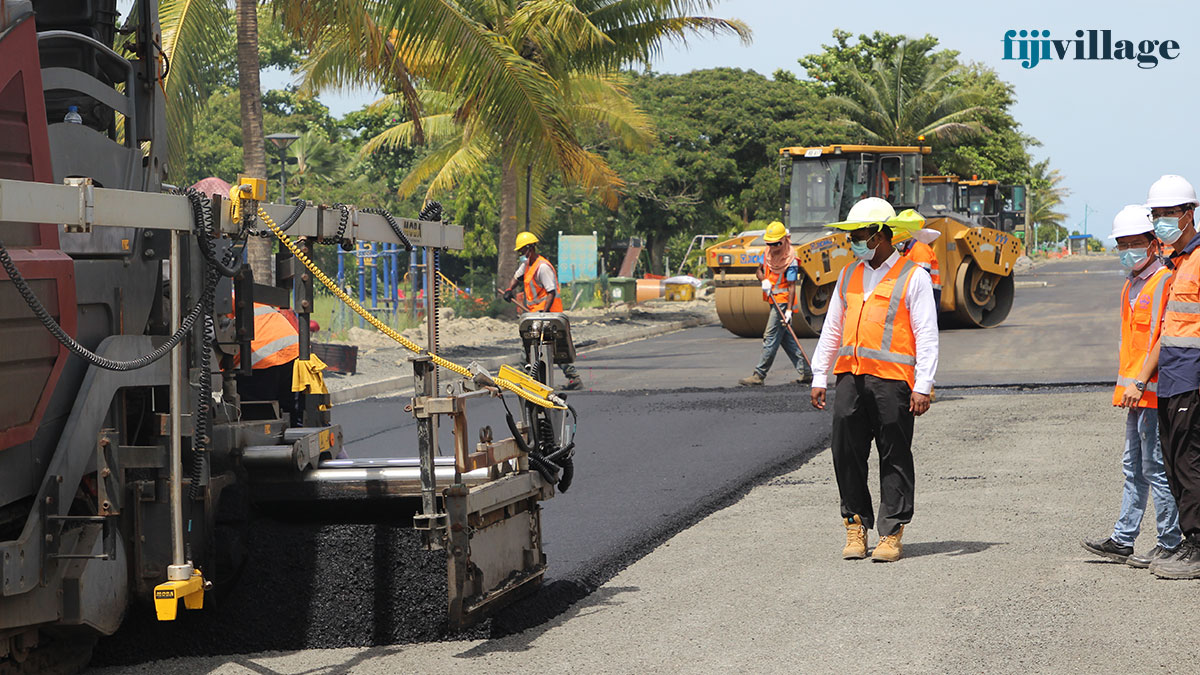
The Fiji Roads Authority is allocated a budget of $387.6 million while the coalition government has also re-established the Public Works Department (PWD) to improve the state of rural roads around the country with an initial setup cost of $5 million.
While delivering the 2023/2024 National Budget, Deputy Prime Minister and Minister for Finance, Professor Biman Prasad says they are going to change the approach towards the planning, construction and maintenance of our roads.
He says in the last eight years, a total of around $3.1 billion was spent by FRA without any strategic plan, without much priority and without proper costing.
Prof. Prasad further says this compromised the standard of infrastructure including roads and led to significant wastage of public funds.
He says they need to do more with less money.
The Deputy Prime Minister further says they need to improve the value for money as there has been a lot of wastage and funding of “novelty type” over designed expensive roads in Fiji.
He says the new FRA Board is fully in sync with this and they have been working closely with the Government to rethink some of the scoping and design works, rethink about the modalities of awarding road contracts, including closer monitoring and supervision of contractors.
The Finance Minister further says there is also a need to open up and encourage the participation of local contractors through direct contracting for smaller contracts.
Prof. Prasad further says major emphasis is being placed on the need to ensure adequate maintenance of Fiji’s road network and as such an increased allocation of $100.6 million is allocated for road maintenance, $42.0 million for completed maintenance and emergency works, $60 million is provided for the renewal and resurfacing of roads, $35.4 million is allocated for completion of the ongoing bridge projects, $18.3 million for the rural roads programme, $13.2 million for the upgrade of Queen Elizabeth Drive, and $82.2 million for the Transport Infrastructure.
He says the Investment Sector Project is financed through the Asian Development Bank and World Bank loans of US$100 million and US$50 million, respectively.
The Finance Minister further says the Ministry of Public Works, Meteorological Service and Transport is allocated a sum of $98.3 million.

The Fiji Police Force has been allocated a sum of $183.7 million which also includes the recruitment of an additional 100 Police Constables to boost its operations,
Deputy Prime Minister and Minister for Finance, Professor Biman Prasad says they aim to improve police visibility - $700,000 is allocated to strengthen the Police Beat Patrol in both urban and rural areas.
Professor Prasad says the Force is increasingly focused on preventing cybercrimes and combating the distribution and use of illegal drugs.
He also says over the years, the previous Government has constructed new police stations which has cost close to $100 million while many existing police stations, quarters and posts were neglected.
Professor Prasad says with the focus on maintenance and bringing our infrastructure to a better standard, $3 million is allocated for the renovation and upgrade of Police quarters and posts.
He further says they also acknowledge the important role that the Republic of Fiji Military Forces plays in maintaining the security, defence and supporting peace efforts around the world.
The RFMF budget has increased from $94.1 million to $103.1 million.

Good news as $9.7 million is allocated for overseas sporting tours including the Rugby World Cup, 2024 Pacific Games, Commonwealth Games, operations of the Fiji National Sports Commission, engagement of sports coaches, hosting international tournaments in Fiji, Sports Outreach Programmes, Sports Scholarships and sports grants for persons with disability.
Professor Prasad says the Ministry of Youth and Sports is allocated a sum of $19.5 million in the 2023-2024 Budget.
He says sports plays a key role in building social cohesion and improving Fiji’s image globally.
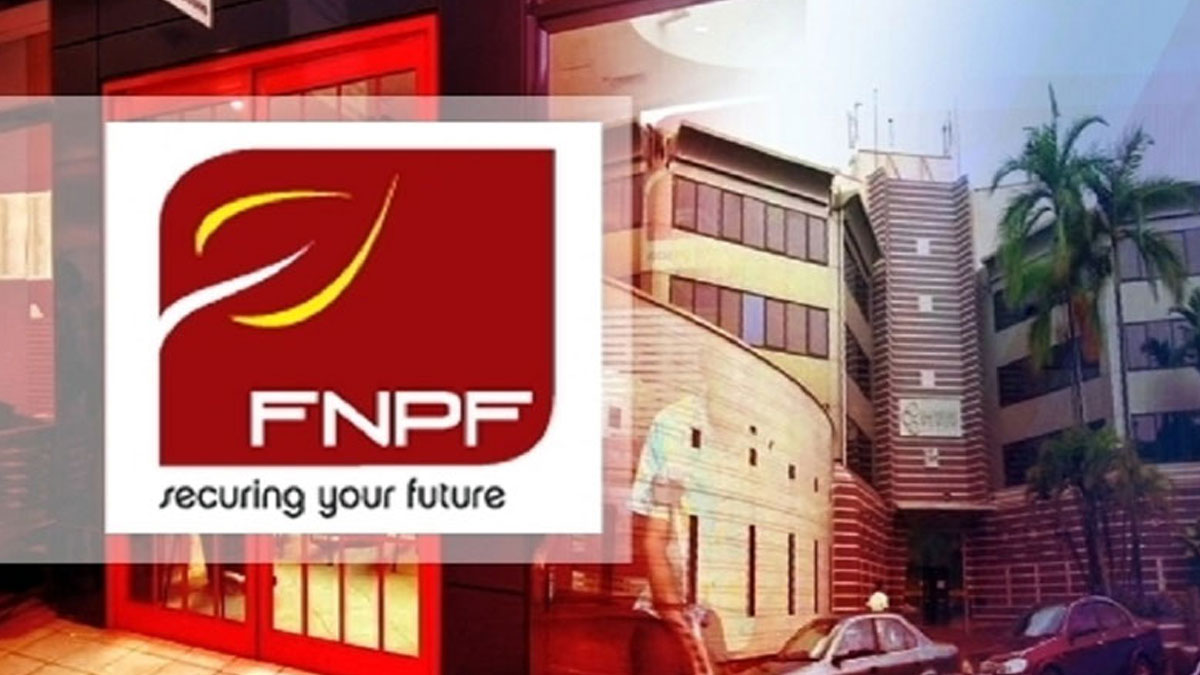
The FNPF rates will be reverted to pre-COVID rates of 10 percent employer and 8 percent employee contribution, effective from 1st January 2024.
Deputy Prime Minister and Minister for Finance, Professor Biman Prasad says the reinstatement of the contribution rates will replenish member account savings and provide FNPF with additional funds for investment purposes.
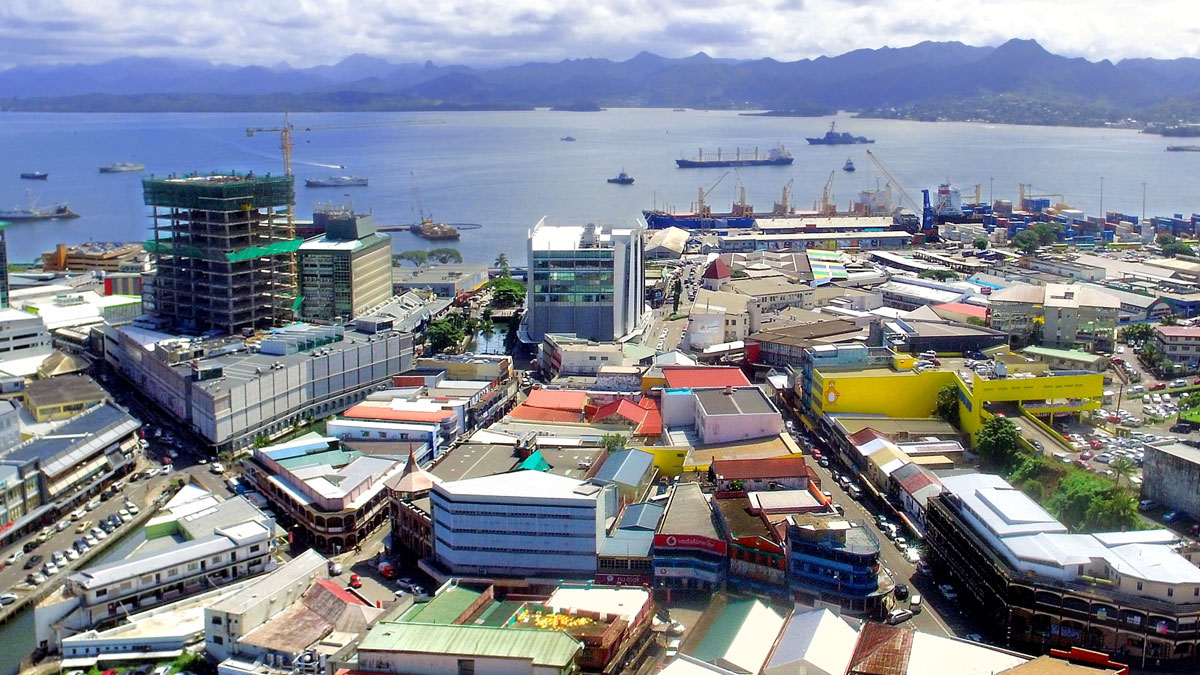
Government will increase and diversify competency-based training grants, known as Micro Qualifications, through tertiary institutes and private sectors with training facilities, to target immediate labour shortages in areas of Construction, Tourism and Hospitality and Automotive.
A minimum 1 month in training grant of $500 per student will be targeted for the unemployed youths and adults currently engaged in domestic duties opting to earn a living.
This is expected to benefit 1,800 students.
500 people can access this for the construction industry in tile laying, painting, block laying, joinery and cabinet making; 1,000 for the tourism and hospitality industry in house keeping, restaurant service and front office operations; and 300 for Automotive Industry in Basics of Panel beating and Automotive Painting.
Government will allocate 400 awards to revamp and incentivise the apprenticeship training. Under this scheme, Government will cover either 50 percent of the tuition fees or top up the minimum wage rate paid by the employers by $2 an hour.
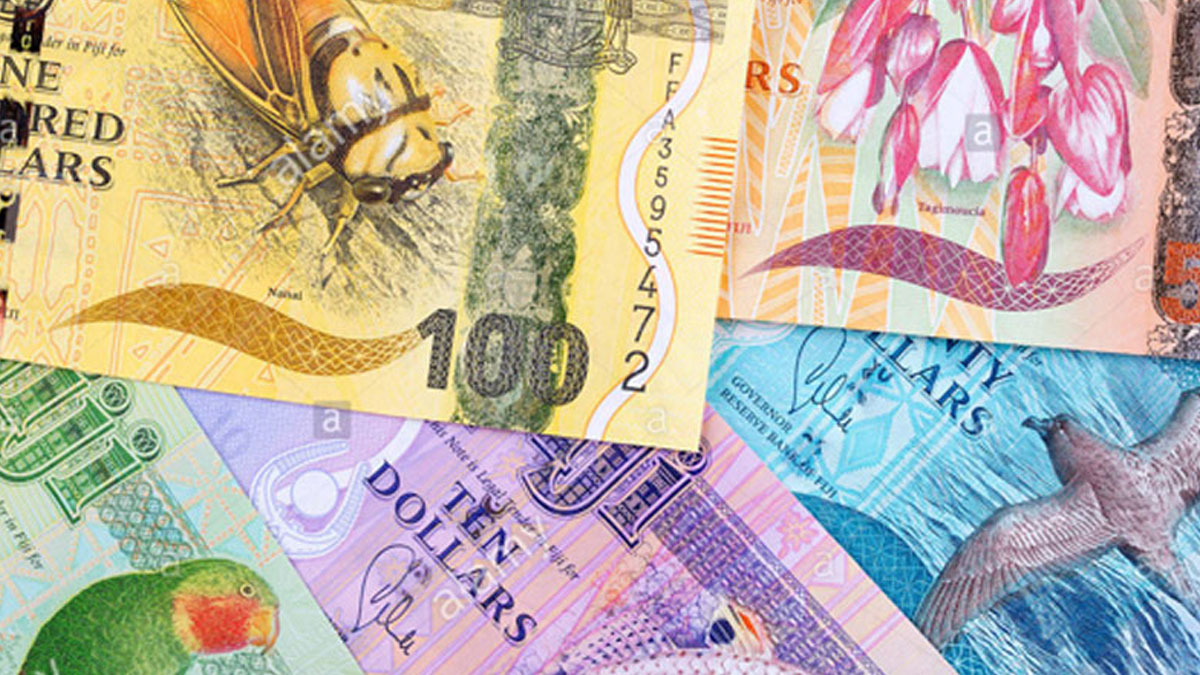
In the next 6 to 9 months, the coalition government will holistically review the civil service remuneration and pending review the salary structure of the civil service will be readjusted to be commensurate with the work the civil servants are doing for the nation.
Finance Minister, Professor Biman Prasad says the coalition government will also review the current minimum wage rate in the next financial year as they want the workers to receive a fair and just living wage through a proper consultative process.
He says they are working together with the workers representatives to review the overall pay and benefits of the civil servants.
Professor Prasad says they are working together with the workers representatives to review the overall pay and benefits of the civil servants.
They know this has not been done for almost 5 years and their hardworking civil servants, teachers, police and medical professionals have not received a pay rise for some time.
He says the coalition government as promised, restored the tripartite arrangement that they had for many years and they will use this to ensure the rights of workers are respected through dialogue and consultation with government and employers.
Professor Prasad further says government is the largest employer in the country employing over 35,000 civil servants and as the largest employer, they are committed to looking after the welfare of the people.
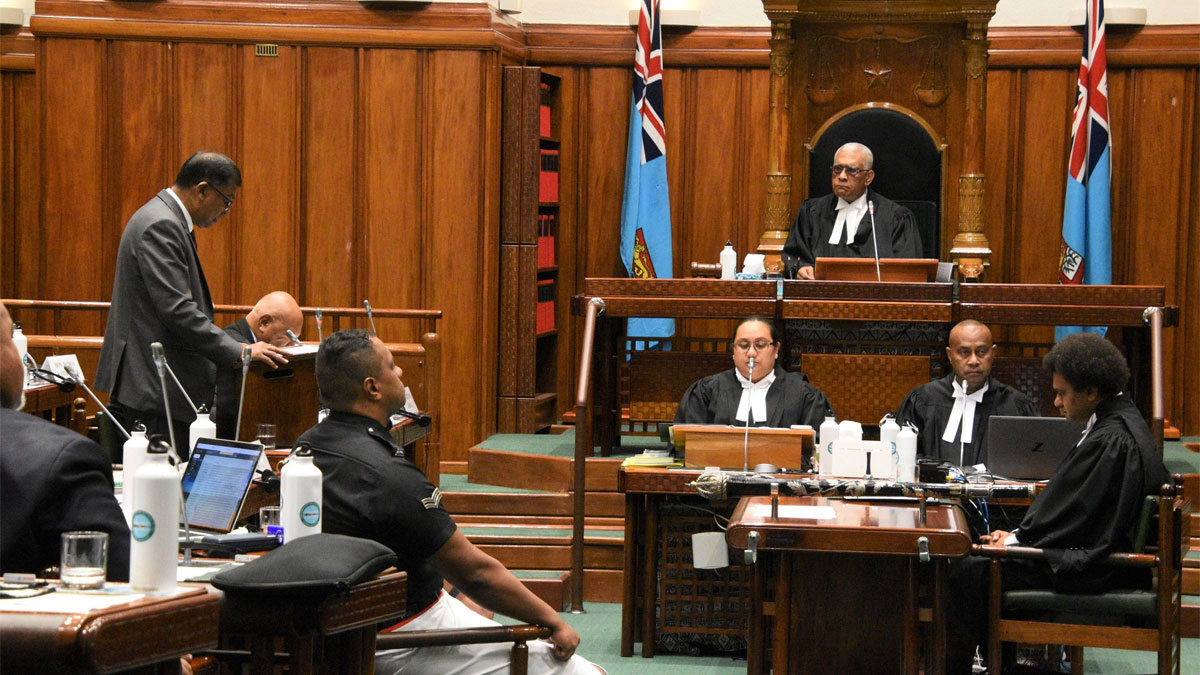
Apart from the 20 percent reduced pay for the government ministers, they are significantly cutting down ministerial travel allowances that were put in place by the previous government.
Deputy Prime Minister and Minister for Finance Professor Biman Prasad highlighted this while delivering the 2023/2024 National Budget adding the focus now will be on the efficient and effective use of every single dollar.
Professor Prasad further says they will start this from the ministerial level to set an example.
He says they are going to cut wastage and unnecessary spending by starting themselves.
He further says all Coalition Government Ministers support these reductions, starting with the Prime Minister himself.
Prof. Prasad says for the travel allowance of the Prime Minister, the current 250 percent per diem loading will be reduced to only 100 percent.
He further says Ministers will have their top up reduced from 200 percent to only 50 percent.
The Finance Minister says for assistant Ministers the top up will be reduced from the current 100 percent to 25 percent.
He further says apart from these major reductions, they will remove all the exorbitant incidental allowances that are currently provided.

There will be a great relief to those who have been affected by termites in the western and northern divisions as the government has allocated $3 million to assist those families whose properties have been damaged.
Assistant Minister in the Prime Minister's Office Sakiusa Tubuna says there are around 150 termite-infested properties that have already been identified in Lautoka.
The Assistant Minister says the situation is so dire that some houses will need to be demolished because the termites have already compromised the integrity of the structures.
Tubuna says experts suggest that termites can devalue a property by around 25 per cent and reduce property life, making repairs more costly over the years
He says the time to act is now as they are a group that will make a difference.
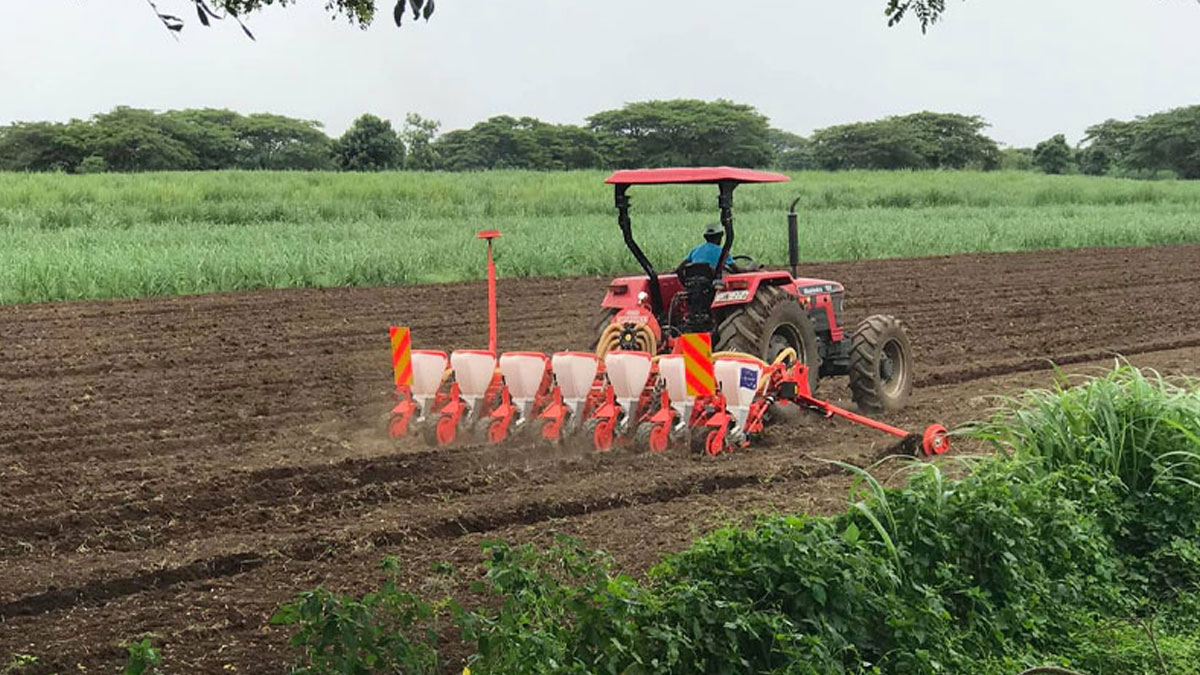
Minister for Finance, Professor Biman Prasad says for the first time government will now be providing weedicide and fertilizer subsidies for non-sugar crops including rice, ginger, dalo, and cassava with funding of $1 million to boost the production of these crops.
He says they will review the entire dairy industry which is another disaster left by the previous government as the dairy industry is on the verge of collapse therefore $5 million is allocated to Fiji Cooperative Dairy Company Limited and for the dairy extension programme.
Professor Prasad says the agricultural sector plays an important role in food security, income generation, employment, rural development, and economic diversification therefore, the Ministry of Agriculture and Waterways has been allocated a budget of $95.2 million.
Professor Prasad says this is a major increase of $37.3 million.
He says a total of $13.9 million is allocated to fund the agricultural marketing authority, Committee on Better Utilization of Land, and commercial agriculture development.
A total of more than $47.5 million is provided for the crops and livestock research and extension services to strengthen agricultural productivity.
$5.3 million is allocated for farm access roads, provision of tractors, and existing agricultural offices and quarters.
Deputy Prime Minister further says the Department of Waterways is allocated a budget of $22.1 million to improve the drainage system around the country which is also in a very bad condition and has been neglected over so many years.
He says to improve the drainage schemes a total of $16.2 million is allocated to cater for major river dredging, coastal erosion protection, watershed management, and maintenance of rice irrigation drainage.
Professor Prasad also says the Biosecurity Authority of Fiji supports Fiji’s agricultural produce exporters by providing information, inspection, and certification to meet the import requirements of overseas countries, moving forward, BAF and the Ministry of Agriculture need to work together to create farmer awareness (such as farmer outreach activities) the list of agricultural produce under current pathways and market access, support market access negotiations and retention of such markets and new export pathways are developed and adopted.
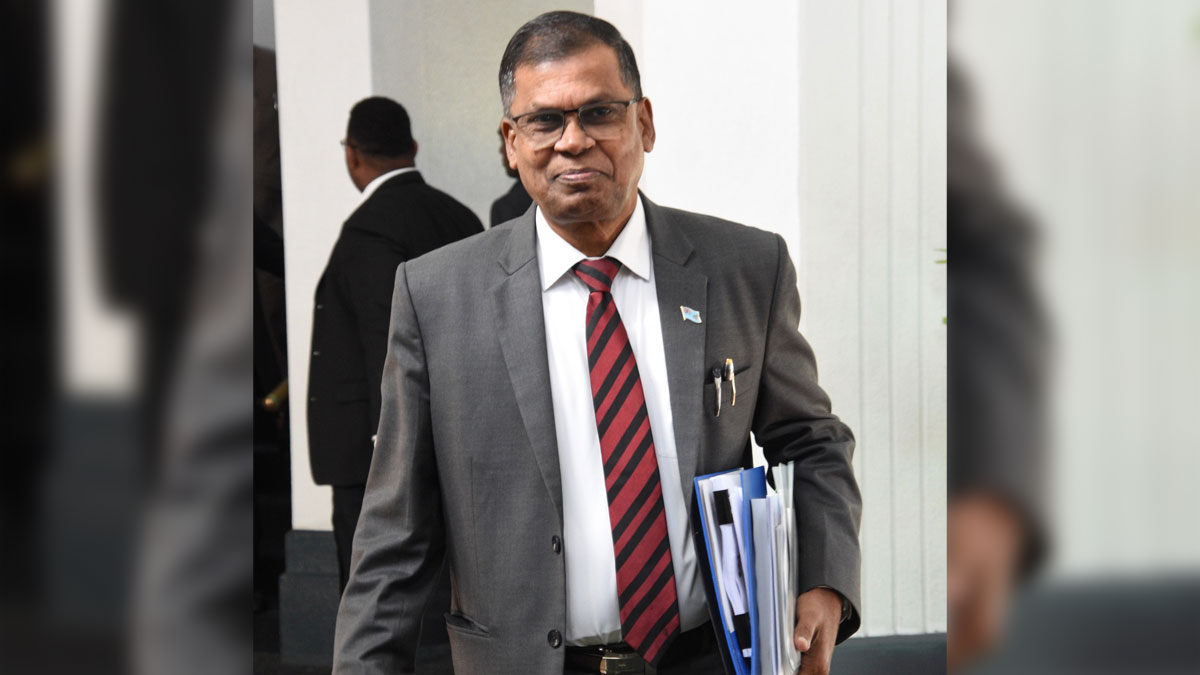
Deputy Prime Minister and Minister for Finance, Professor Biman Prasad says the Ministry of Local Government is firmly focused on facilitating the town and city council elections next year.
Professor Prasad says the Ministry of Local Government is allocated a sum of $29.3 million in this budget.
He further says a sum of $3.9 million is allocated for the new Savusavu market, around $1 million for the new Nakasi market, $100,000 for the preparatory works for the Dreketi mini-market, $1.3 million for the completion of Levuka market, $3.5 million for the completion of Govind Park and $4.6 million for the completion of the Lautoka Swimming Pool.
The Finance Minister says both Govind Park and Lautoka Swimming Pool projects were very badly planned, managed and executed.
He further says the government is now left with no option but to provide additional funding to complete these projects with increased cost.
The Deputy Prime Minister says they will ensure that the project gets completed in the new financial year and a review will be undertaken by the Ministry of Finance to look at how the projects were implemented, value for money assessment and reasons for the failure of the projects.
He adds to support the Drua team they are allocating $1 million dollars for procurement of enhanced equipment and services required to deliver international quality broadcast required for Drua’s participation in Super Rugby and other international matches.
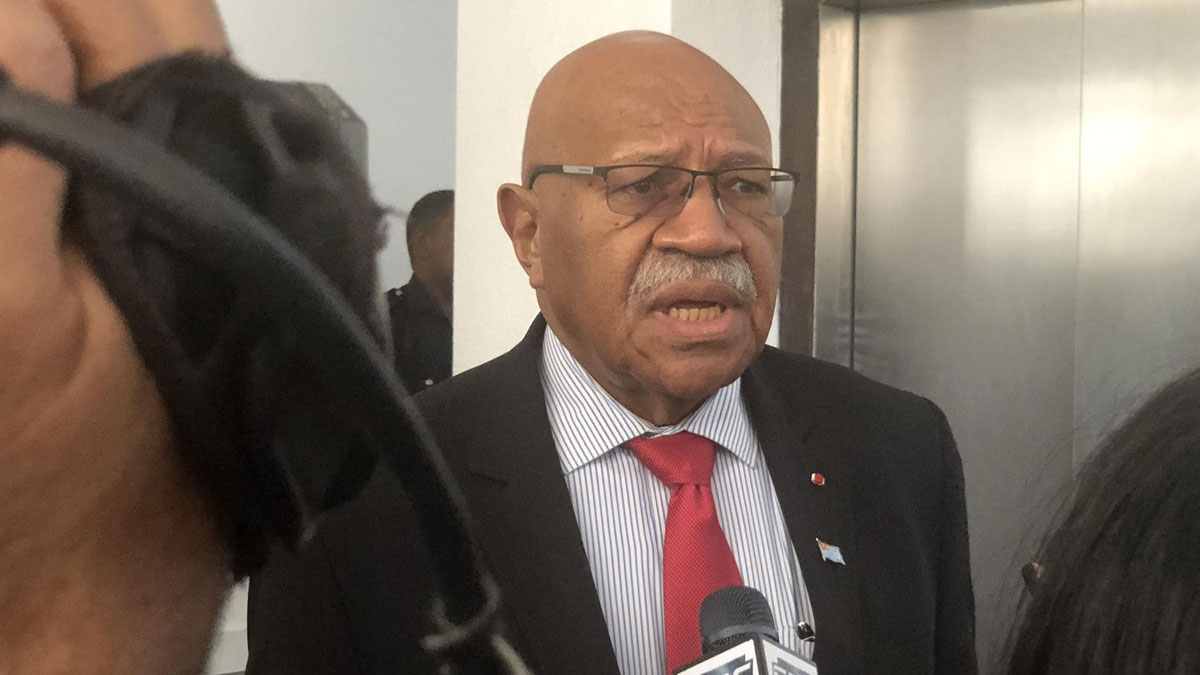
This budget is possible as we have worked through it and projected the activities required in the allocations, we can manage and it will work.
These were the words of Prime Minister Sitiveni Rabuka after the budget announcement today.
Rabuka says this was the result of the consultations that they were having in cabinet and it is the best that this coalition government can afford at this time.
He says as the Minister of Finance has said, we have to come out of the difficult situations that we are in and it will be like a surgical operation where you cannot do it without drawing blood.
Rabuka further says this budget will cause pain but he believes the coalition government has reduced the pain with what should have been done when trying to recover from such a big difficult situation that the country has been in.
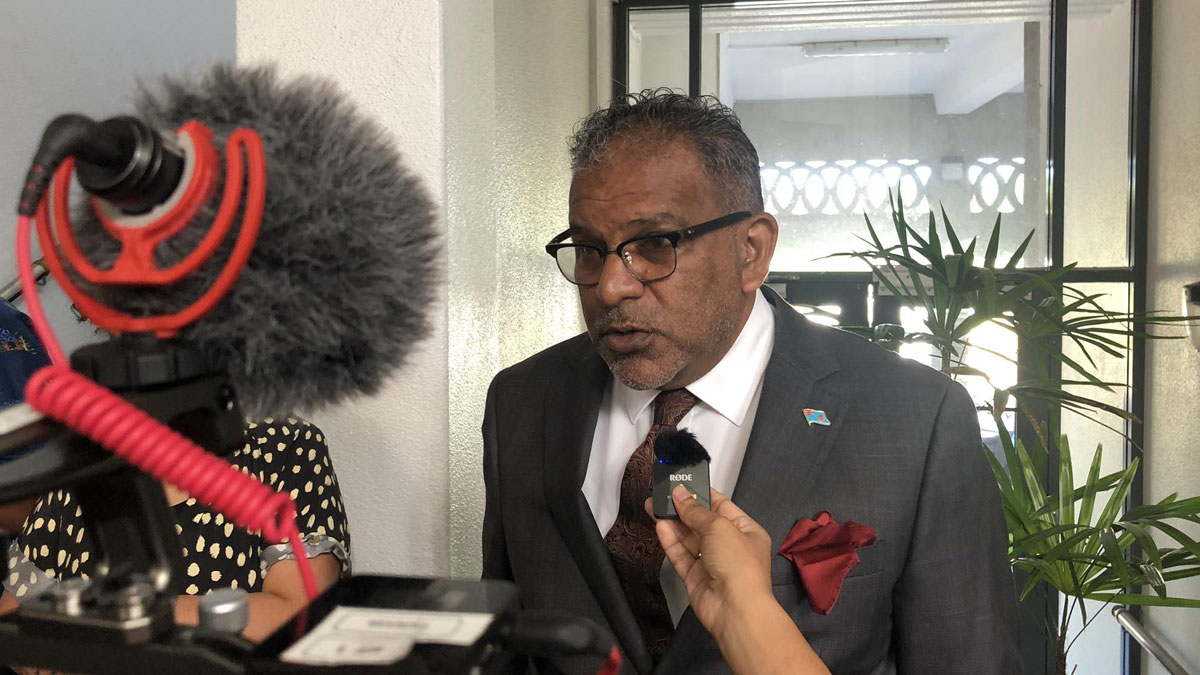
Opposition MP, Faiyaz Koya says he thinks the 2023/2024 National Budget is not a positive thing, with the news of VAT being increased.
He says the budget is also not positive for corporate bodies.
Koya says to grow the economy, there has to be growth of the economy for Fiji to get into that space again.
He also highlighted that there are not many incentives in this budget to assist in the growth of the economy.
The Opposition MP says from an investment perspective there is not much in the budget to create a good investment climate, which is what is needed, especially with Fiji coming out of COVID.
When questioned on what ways the government could have handled the situation due to the $10 billion national debt, Koya says this will be known when they debate the budget in Parliament.
2023-2024 Budget Coverage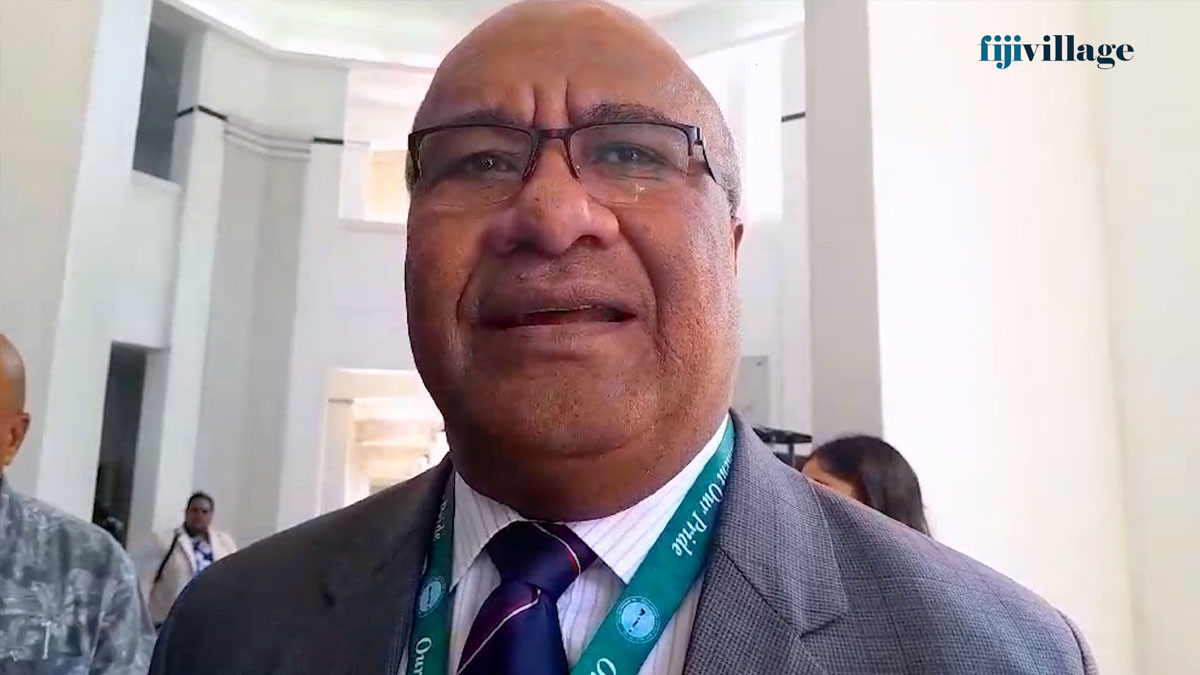
Deputy Prime Minister and Minister for Trade, Cooperatives, Small and Medium Enterprises and Communications, Manoa Kamikamica says Fiji needs to expand its economy and help in paying the debt of the nation.
Kamikamica highlighted this after the announcement of the 2023/2024 National Budget.
He says the ministry will work together in rebuilding the nation.
He says there is an allocation of money for the Small and Medium Enterprises in the budget that will help the ministry to continue providing the assistance that they require as their contribution to the economy is significant.
Kamikamica says they will continue to push and encourage MSME’s as they have many opportunities in shaping the lives of the people and the country.
He further says they will coordinate and collaborate with the Ministry of Rural Development and Ministry of Women, Children and Poverty Alleviation as they are also given MSME’s allocation.
The Deputy Prime Minister says the fiscal duty on sheep and lamb meats is reduced to zero while the beef meat duty reduced from 32% to 22% due to the demand for consumption.
He says with the perspective of keeping promises the youths are supposed to be very happy with the TELS debt being written off which was possible with the cooperation of all three parties.
The Deputy Prime Minister says he is also happy with the allocations given to the Ministry of Health, Education, Women, Agriculture and I-taukei as required those amounts to efficiently run their respective Ministries.
He says they will be spending the allocate in an organized way.
The Ministry Trade, Cooperatives, Small and Medium Enterprises & Communications is allocated $116.5 million for the next 12 months.
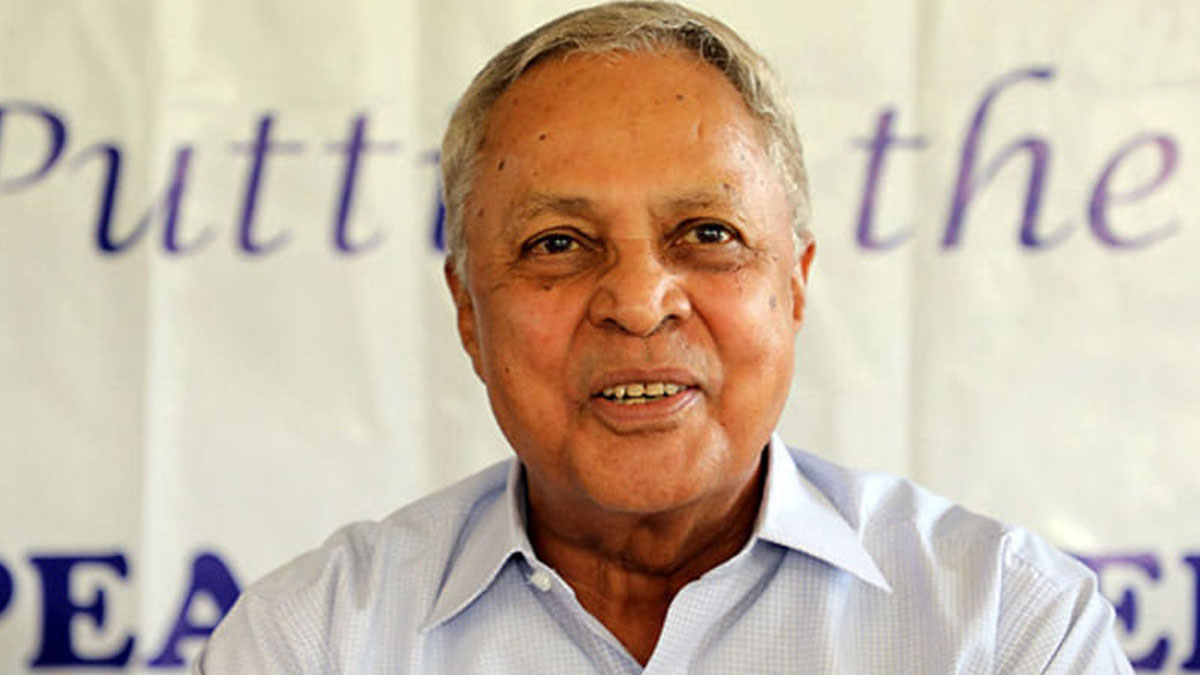
The Fiji Labour Party has described the 2023/2024 National Budget as a flat budget as it says it is devoid of any innovative measures to grow the economy and address poverty.
Reacting to the budget announcement by Deputy Prime Minister and Minister for Finance Professor Biman Prasad, FLP Leader Mahendra Chaudhry says the budget is structured largely along the lines of the World Bank and the Fiscal Review Committee reports, except for the retention of the zero-rated VAT on basic food and other household items - under strong pressure from the people.
He says the rich seem to have done pretty well, seeing that the Minister has not deemed it necessary to tax dividend income.
Chaudhry further says the top personal tax rate has been reduced from 44 percent to 39 percent, and the social responsibility tax for those earning over $270,000 annually, has been scrapped.
He adds a glaring omission in the Finance Minister’s address was any mention of the government's plans on employment creation and the retention of skilled workforce migrating abroad by the hundreds for a more secure future.
The FLP Leader says Professor Prasad has let the workers down by deferring consideration of a much-expected increase in the minimum basic wage, contrary to his campaign promises of 2018 and 2022.
Chaudhry says the restoration of the FNPF contribution rate to 18 percent is welcome, but the grouping of the fund’s pensioners with the recipients of social welfare benefits is deplorable.
He says the right thing to do was to have restored their pre-2012 annuity rates, and to simultaneously revert the unlawfully reduced current rate of 8 percent to the pre-2012 rate of 15 percent. The former Prime Minister adds the budget has let down our cash crop farmers by restricting farm input subsidies to those planting export crops.
He says sugarcane farmers are equally disturbed that promises of an increase in the minimum guaranteed price of cane have not been kept.
Chaudhry further says the Minister’s announcement that a new strategic plan is to be prepared to boost cane production to restore viability to the flagging industry sounds like the failed promises of the FijiFirst government.
He adds another promise not kept is doubling the welfare payment rates.
He says the two-tier increase from $100 per month to $115 and $125 per month for those between 60-69 years and over 70 years, respectively, is not only inadequate, bearing in mind the high cost of living but it's also discriminatory.
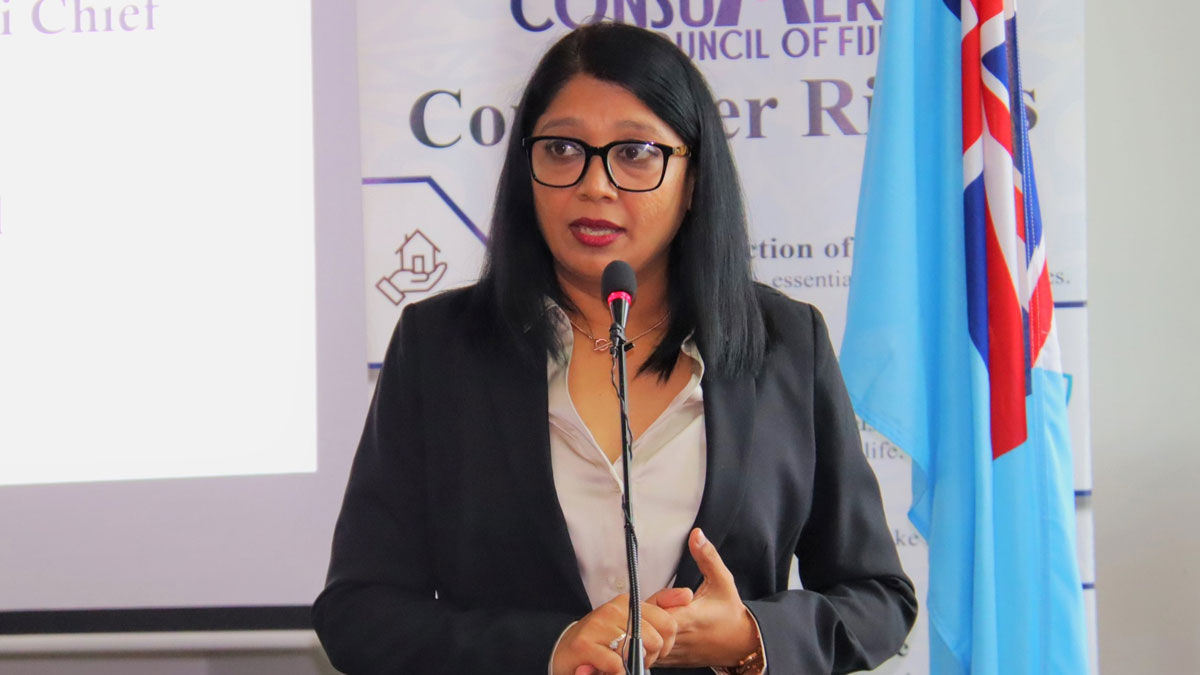
This is a budget that will build a stronger economy and an equitable society.
This was stated by the Consumer Council of Fiji as they welcomed the significant measures announced in the 2023-2024 national budget that was aimed at bolstering social welfare assistance and alleviating the burden on consumers' everyday expenses, especially in times of global economic uncertainties.
Council Chief Executive Officer Seema Shandil stated that the new budget has allocated substantial resources to expand and enhance social welfare assistance programs across the nation.
Shandil says the 15 percent across the board increase in social welfare assistance and 25 percent increase in allowance for those over 70 years of age will increase the purchasing power of the needy population and will have a cushioning effect on the vulnerable and the lower and middle-income earners.
She says the budget introduces substantial funding for social welfare programs, ensures affordability of essentials and reaffirms the government's commitment to ensuring the well-being and prosperity of Fijian consumers.
Shandil adds the social assistance mentioned above has been further complemented with the continuation of VAT exemption on 22 essential items – this will enhance the standard of living and address the needs of the most vulnerable members of society.
She also mentioned that the exemption of VAT on prescribed medication is a resolute step toward ensuring that individuals have affordable access to essential healthcare resources. She says this is a key announcement in the national budget that would ensure consumers have adequate and appropriate medical care.
She adds this will actively promote public health and well-being, especially for those who depend on medication to manage chronic conditions or address acute medical needs.
Shandil says this policy announcement also demonstrates a deep understanding of the challenges faced by individuals requiring regular access to vital healthcare treatments.
The CEO says they also welcome the continuation of the public private partnership whereby Fijians with combined family income of less than $30,000 will be able to access health services in selected private.
Furthermore, Shandil says the back-to-school support of $45 million, continuation of free education for and secondary school students and the introduction of the Fijian scholarship scheme is another good news for consumers as it means they will not have to fork our money from their already constrained wallets and will be able to use this money for other necessities.
She says the provision of free education is a transformative measure that ensures every student has the opportunity to pursue their academic goals, regardless of their socioeconomic background.
Shandil says by removing financial barriers to education, the government is fostering a more inclusive society, where talent and potential can flourish unimpeded.
The Council also stated that while the VAT rate has increased to 15 percent, they note there has been significant reductions in fiscal duties from 32 percent to 15 percent on a range of food products (canned mackerel, corned mutton, corned beef, prawns and duck) as well as imported lamb/sheep.
They say this will ensure that consumers are able to enjoy a variety of meals apart from the locally grown fresh produce.
Shandil says the Council is emphasizing that these reductions in the excise duties must be passed down to the consumers, to ensure that consumers reap the benefits of it.
She adds traders are cautioned to recognize their responsibilities towards consumers and play a proactive role in easing the burden on them.
The CEO went on to say they will also be closely monitoring the market to ensure the benefits actually trickle down to consumers.
She says given the health and socioeconomic havoc which NCDs is dishing out, the Council also welcomes the imposition of higher excise duty on alcohol and tobacco products, as well as the carbonated sweetened beverages, ice cream, snacks, sweet biscuits, and confectionaries.
She also says the new elevated prices for the above mentioned products would encourage consumers to rethink consuming unhealthy foods, and opt for healthier foods and consumption habits.
Shandil says the fact that these were considered and announced in the budget reinforces that the voice of consumers has been reflected in the national budget.
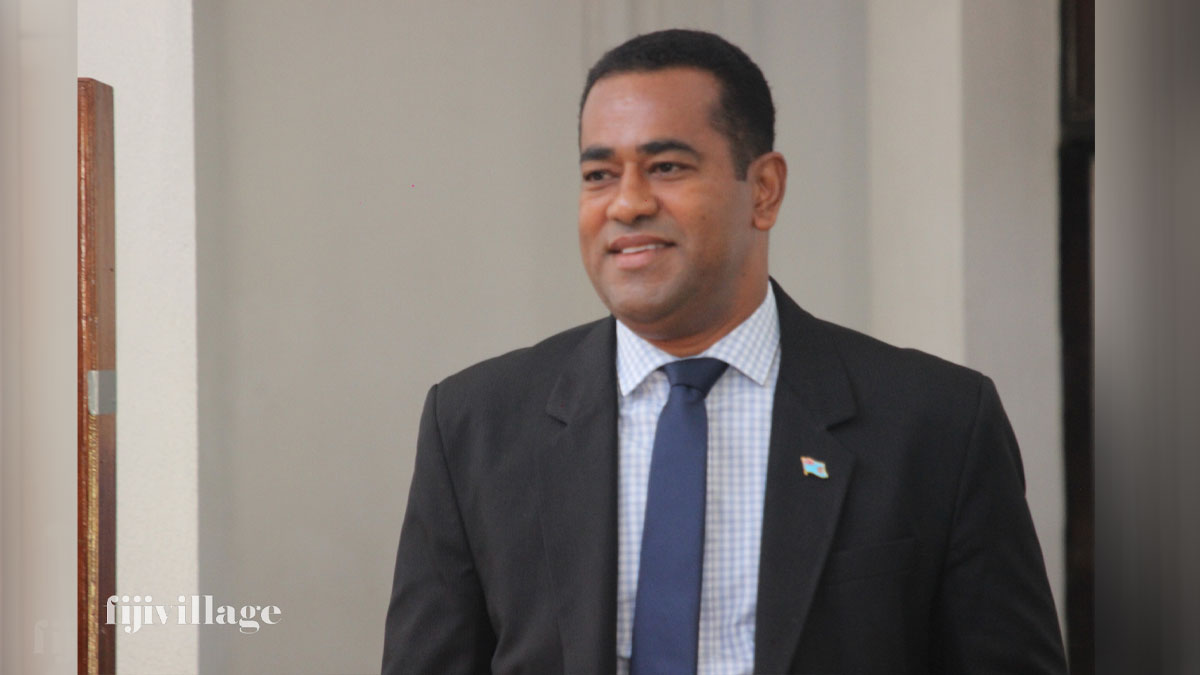
Minister of Lands and Mineral Resources, Filimoni Vosarogo says the 2023/2024 National Budget is a balanced budget that is people-centred, repairing the wrongs of the past and charting the way for the future for all Fijians.
Vosarogo says the increase in agriculture means more employment in the informal sector of the economy that would ensure food security for our citizens and export for our export market.
He says they knew that they will get what they requested as our budget was realistic based on the resources.
He says the budget will enable the ministry to deliver its core mandates, which includes, effective administration and regulation of the land and mineral sector.
The Minister says they must ensure that land is available for livelihood needs, safe and clean drinking water and that a conducive regulatory environment is in place for business development and growth.
He adds they will enhance Fiji’s Geodetic Datum system that will boost the work of the surveyors in delivering key activities such as the survey of Mahogany plantations and the proper demarcation of land boundaries under the Schedule A project.
He further says the allocated budget will boost the Department to undertake new initiatives that will greatly assist the Ministry to identify potential river gravel sites and the amount of resources available in Fiji.
Vosarogo says he understands that his ministry is a key facilitator and contributor to Fiji’s social and economic development and he has a team of experts that will deliver the services required of them.
Updates:
By fijivillage
$9 million is allocated to continue with the development and implementation of an online business and construction business licensing system for the Ease of Doing Business, and the rollout of the 16 agency Ease of Doing business process which will fully digitise the Starting a Business and Obtaining Construction Permits processes.
The Ministry of Trade, Co-operatives & Small Medium Enterprises and Communications is allocated a budget of $116.5 million in the next financial year, an increase of $25.3 million from this year’s allocation.
Tourism Fiji is allocated an operating grant of $7.0 million and to support new marketing strategies an increased Marketing Grant of $30.0 million is provided in the new financial year.
The Ministry of Lands and Mineral Resources is allocated a budget of $30.1 million to enable the Ministry to continue effectively and efficiently administer and regulate the land and mineral resource sector.
This will support the expansion of aquaculture, shrimp farming, seaweed Development Programme, Multi-Species Hatchery, construction of ice plants and the supply of tilapia fingerlings and prawn frys to farmers in the Western Division.
This will support the expansion of aquaculture, shrimp farming, seaweed Development Programme, Multi-Species Hatchery, construction of ice plants and the supply of tilapia fingerlings and prawn frys to farmers in the Western Division.
The Ministry of Fisheries and Forestry is allocated a budget of $41.6 million.
$500,000 is allocated for the preparatory works for gas crematorium for Navua, 2 sites in western division and 1 in the northern division.
The govt will continue with the cane guaranteed price of $85 per tonne with an allocation of $4 million.
With the aim to increase cane production from current production of 1.6 million tonnes to 1.9 million tonnes by 2024 season, a sum of $11 million is allocated for Sugar Development and Farmers Assistance Program, New Farmers and Lease Premium Assistance, Weedicide Subsidy, Farm Incentive Program and Cage Bins.
The Ministry of Multi-Ethnic Affairs and Sugar Industry is allocated a sum of $51.7 million in the new financial year of which $49.7 is for the sugar unit.
Govt has allocated a sum $3.0 million to assist those Fijians whose properties has been damaged/affected by termites in the western and northern division.
The Ministry of Finance will release more details on the roll out of this initiative soon.
$5 million is allocated to Fiji Cooperative Dairy Company Limited and for dairy extension programme.
They will review the entire dairy industry. Prof. Prasad says this is another disaster left by the previous government as the dairy industry is on the verge of collapse.
For the first time, they are now providing weedicide and fertilizer subsidy for non-sugar crops which includes rice, ginger, dalo, and cassava with a funding of $1 million to boost production of these crops.
$47.5 million is provided for the crops and livestock research and extension services to strengthen agricultural productivity.
$13.9 million has been allocated to fund the agricultural marketing authority, Committee on Better Utilisation of Land, and commercial agriculture development.
The Ministry of Agriculture and Waterways is allocated a budget of $95.2 million in this Budget which is a major increase of $37.3 million.
Govt has also re-established the Public Works Department (PWD) to improve the state of rural roads around the country with an initial setup cost of $5 million.
Ministry of Public Works, Meteorological Service and Transport is allocated a sum of $98.3 million.
$82.2 million for the Transport Infrastructure Investment Sector Project financed through Asian Development Bank and World Bank loans of US$100 million and US$50 million, respectively.
$35.4 million is allocated for the completion of the ongoing bridge projects, $18.3 million for the rural roads programme, $13.2 million for the upgrade of Queen Elizabeth Drive
$42.0 million for completed maintenance and emergency works, $60 million is provided for the renewal and resurfacing of roads An increased allocation of $100.6 million is allocated for road maintenance.
The Fiji Roads Authority is allocated a budget of $387.6 million which comprises $14.7 million for operations and $372.9 for capital expenditure.
In the last eight years, a total of around $3.1 billion was spent by FRA without any strategic plan, without much priority and without proper costing.
A new initiative by the Coalition Government will set aside 3 PhDs, and 5 Masters by Research awards for study at New Zealand Universities.
The full details and eligibility and the selection criteria handbook will be published by TSLS soon.
Effective from 1st January 2024, all students under scholarships other than merit-based will receive $2,500 per semester if they study at campus away from home, $1,500 for home-based campuses.
In terms of allowances, students under merit-based scholarships will be eligible for $3,400 per semester.
The bonding for new students under this scheme will be years of study multiplied by 1.5 times if tuition only and years of study multiplied by 2 times if tuition and allowance is paid.
The eligibility marks will be based on labour market needs and enrollment capacity of the universities.
Prof. Prasad says this will cater for the scholarships of 8,720 new students and funding needed for the 9,148 existing students.
Moving forward, the govt will provide all eligible students with scholarships under the rebranded Fijian Scholarship Scheme with a total budget of $148.2 million in this Budget.
The bond service for students whose TELS debts will be forgiven, will be years of study multiplied by 1.5 for these graduates. Those who choose not to serve the bond will have to pay the equivalent cost amount.
Funding is also provided to Corpus Christi, Fulton College, Montfort Technical Institute, Monfort Boys Town, and Vivekananda Technical Centre.
The Fiji National University will be provided a funding grant of $43.4 million, University of Fiji is provided an increased grant of $2.8 million while the newly established Pacific Polytechnic will receive a funding grant of $1.0 million and Sangam Institute of Technology has its grant increased from $114,000 to $614,000.
In this Budget, USP will receive a total funding of $53.5 million.
Government will continue providing financial support to our tertiary institutions with a total funding allocation of $103.3 million.
Prof. Prasad says the employers have been suffering from this and the previous Government’s hasty decision to remove the NTPC levy.
The govt plans to revamp the apprenticeship scheme in the next few months and also review the NTPC levy and how best to support and fund skill upgrades in the workforce. Technical education - they are now going to invest in this and work together with existing service providers, including the newly established Pacific Polytech.
$49 million is allocated for the overall maintenance and upgrade of schools including the construction of TC Yasa affected schools and staff quarters in Vanua Levu. The Australian Government has provided $30 million towards this.
$45 million has been allocated to continue the ‘Back to School Support’ of $200 per child for students from early childhood to Year 13 for the school year 2024. This will benefit over 230,000 students for families with less than $50,000 household income.
Free education and transport assistance for ECE, primary and secondary school students will continue with a total funding allocation of more than $100 million.
$8.9 million is allocated for salary upgrade of teachers who have completed relevant qualifications to move to a higher band in line with the Teacher Remuneration Setting Policy.
The salaries and wages budget for the Ministry has been increased from $318.1 million to $322.6 million to cater for the funding for the more than 14,000 existing teachers and newly established 179 new teaching and non-teaching positions at the Ministry of Education.
The education sector is given the highest allocation in this Budget to a tune of $845 million.
From 1st August 2023, only patients with a combined household income of $30,000 or less per annum can qualify for the free services at the private practitioners.
$16.4 million is allocated for the upgrade and maintenance of urban hospitals and institutional quarters, permanent walkway for the maternity hospital at CWM, purchase, installation and replacement of ICT equipment, and a major interior upgrade of Labasa hospital.
$2.5 million is allocated for the Kidney Dialysis Treatment Subsidy. The allocation has been increased by $1 million from this year’s level to cater for the increase in the dialysis subsidy from the current $150 per session to $180.
$63 million has been allocated for public health programmes, Emergency Radiology and Laboratory Services, procurement of drugs, consumables, medicines, and purchase of bio-medical equipment and accessories.
They are also providing $11.6 million for the upgrade of nurses salaries and overtime.
The nursing assistant and nurse aide positions have been created to support the nurses focus on their core role, where these aides and assistants will take over the non-clinical responsibilities like making the bed, getting the consumables etc.
This will cater for 250 Intern nurses to move up to become registered nurses; 237 new Intern nurses; 46 Nursing Assistants; 50 Nursing Aides; 40 Midwives; 94 Medical Laboratory scientists; and additional support staff in various hospitals and non-medical officers for the Fiji Pharmaceutical & Biomedical Services to strengthen capacity and improve procurement efficiency.
The salaries and wages budget for the Health Ministry have increased to $126.4 million.
The Ministry of Health is allocated a budget of $453.8 million, a significant increase of $58.7 million from this year.
$4 million is allocated for iTaukei Land Development to help landowners with the development of their land for commercial purposes.
To recognise and support the Turaga-ni-Yavusa in decision-making and Vanua administration, a monthly allowance of $100 has been allocated for 648 Turaga-ni-Yavusa under the Vanua Leadership Allowance with a sum of around $0.8 million.
The Mata-ni-Tikina quarterly allowance will be increased by $150 per quarter, which is equivalent to an increase of $50 per month for the 262 Mata-ni-Tikina.
The Turaga-ni-Koro monthly allowance will be increased from $100 to $150 per month for all 1,181 Turaga-ni-Koro for which a total sum of $2.1 million is allocated.
To strengthen iTaukei administration and provincial councils, a grant of $10.8 million is allocated to fund the 14 provincial councils, including $4.3 million to fund the salaries and wages of 182 provincial council officers and other operational expenses of around $6.1 million.
The Ministry of iTaukei Affairs, Culture, Heritage and Arts has been allocated a budget of $38.6 million, a major increase of $23.2 million from this year's allocation However, students need to serve the required bonds.
All outstanding TELS debts have been forgiven excluding in-service training.
$500,000 is allocated for the Women’s Plan of Action and a further allocation of $200,000 is provided to support women's organizations for their advocacy work. $43 million is allocated to cater for disability allowance, bus fare subsidy for elderly and disabled, electricity subsidy to households below $30,000 income and insurance for social welfare recipients. Over 100,000 people are expected to benefit from this.
The Family Assistance Scheme is allocated a budget of $45.
6 million. This is an increase of $11.5 million from the current financial year. A total of 26,000 households are expected to be assisted in this financial year.
$19.9 million has been allocated for the Child Protection Allowance. This is an increase of $6.2 million.
$100,000 is allocated to cater for the establishment of a new Department of Children.
FNPF will work together with Government to identify and put these pensioners on the social pension scheme, on top of what they receive from their current reduced FNPF pensions. Effective from August 2023, the 1,500 FNPF pensioners who had their pension rates reduced by the military regime will be able to access the Government social pension allowance of $125 if they are above the age of 70 or $115 if they are between 60 to 69 years.
The social pension scheme is allocated a large budget of $78.2 million, an increase of $23.2 million to cater for the needs of 54,200 senior citizens.
Those at the age of 70 years and above, and are on the social pension system, will receive a 25% increase in allowances.
This means that the monthly allowance will increase from $100 a month to $125 a month effective August 2023. Those between the age of 65 to 69 years will have their monthly allowances increased from $100 to $115.
More than 90 thousand people on social welfare will directly benefit from increased monthly allowances of 15 and 25 percent.
The funding allocation for the Ministry of Women, Children and Social Protection is increased from $147.7 million to $200.2 million. This is a major increase of $52.5 million. The Coalition Government will review the current minimum wage rate in the next financial year.
In the next 6 to 9 months, they will holistically review the civil service remuneration and pending the review the salary structure of the civil service will be readjusted to be commensurate with the work the civil servants are doing for the nation.
He says they know this has not been done for almost 5 years and the hardworking civil servants and the teachers, police, medical professionals have not received a pay rise for some time.
The govt is working together with the workers representatives to review the overall pay and benefits of the civil servants.
Employer and employee FNPF contributions will be restored at18 percent effective from 1st January 2024.
They are working with the Asian Development Bank for a major institutional revamp of the Water Authority, including governance, investment planning, asset management, infrastructure replacement and upgrade, review of water tariffs, investment in our people and improving customer service management.
He says it is going to take time and cost over $500 million to replace the 40-year-old pipe system which is leaking underground.
$51.2 million has been allocated for the completion of the Viria water project. The total cost of the project is approximately $400 million.
The water sector will have an increased budget of $250.8 million. This is a major increase of almost $60 million compared to the current budget.
Apart from these major reductions, they will remove all the exorbitant incidental allowances that are currently provided.
For assistant Ministers the top up will be reduced from the current 100 percent to 25 percent.
Ministers will have their top up reduced from 200 percent to only 50 percent.
The Deputy PM says for the travel allowance of the Prime Minister, the current 250 percent per diem loading will be reduced to only 100 percent.
Prof. Prasad says apart from the ministers 20 percent reduced pay, they are significantly cutting down ministerial travel allowances that were put in place by the previous government
$200 million has been allocated for the maintenance of our hospitals, health centres, schools, public buildings, government quarters, roads and bridges and water infrastructure.
They are also restructuring the ICT incentive to tighten the definition and eligibility criteria and align the maximum tax holiday period to 13 years in line with other incentives.
The concession on smartphones will be removed and replaced with a fiscal duty of 5 percent.
The concession on smartphones will be removed and replaced with a fiscal duty of 5 percent.
Concession code 117 (iii) which allows for a reduced duty of 10 cents per litre of fuel for hotels, manufacturers, cruise vessels and mining companies will be removed and a normal rate of 20 cents per litre on diesel will apply.
Code 235 allows hotels and resorts to import building materials, furnishings and fittings, room amenities, kitchen and dining room equipment, utensils and outdoor equipment all duty-free. The government will increase the fiscal duty on this concession from 0 to 3 percent.
Concession code 231 which is available to manufacturers for import of packaging products, that concessionary rate will also be increased from zero to 3 percent. Customs concession code 236 which currently allows all manufacturers to access duty free raw materials and other machinery and equipment, will have the concession rate increased from zero percent to 3 percent.
This would mean that the maximum marginal tax rate will be reduced from the current 44 percent to 39 percent.
He says the Social Responsibility Tax will be simplified by merging it with the PAYE structure, along with a 5-percentage points reduction on each band, for those earning above $270,000, effective from 1st January 2024.
Prof. Prasad says the random change to the capital gains tax regime by the previous govt, designed to help a specific set of special taxpayers, ended up costing the Government almost $70 million in lost revenue. He says they are now going to right this wrong and remove this exemption.
Motor vehicle import excise duty will increase on all new and used passenger vehicle by an additional 5 percent.
To curb NCDs and promote healthy living, a domestic excise of 40 cents per kilogram or per litre and import excise of 15 percent will be introduced on juice (carbonated drinks, Frubu, Tampico, Pulpy, Just Juice and Marigold), ice cream, sweet biscuits, snacks, and sugar confectionery.
Prof.Prasad says they are going to increase the excise tax on alcohol and tobacco by 5 percent while the excise on carbonated / sugar-sweetened beverages will be increased from 35 cents per litre to 40 cents per litre.
Departure Tax will increase from the current $100 to $125 effective from 1st August 2023 and will further increase by an additional $15 to $140 effective from 1st January 2024. This will add a total of $30 million towards overall tax revenues.
This will be for new companies and only for a period of 7 years.
These corporate tax rate increases will add about $73.5 million in revenue.
New companies eligible for reduced corporate tax for listing on the South Pacific Stock Exchange will have their tax rate increased from the current 10 percent to 15 percent. Prof. Prasad says they will increase the corporate tax rate from the current 20 percent to 25 percent.
Government will also reduce import excise on chicken portions such as wings, drumstick, legs, feet, thighs, etc from 15 percent to 0 percent.
Fiscal duty on sheep/lamb meats will be reduced to zero. Beef meat the duty is being reduced from 32%to 15%.
Government will reduce fiscal duty from 32 percent to 15 percent on canned mackerel (except canned tuna), corned mutton, corned beef and beef products, canned tomatoes, prawns and duck meat.
These measures will generate additional net VAT collections estimated at about $446 million for Government.
Professor Prasad says the supply of all other goods and services, effective from 1st August 2023 will attract a VAT rate of 15 percent.
We have added prescribed medicines to the list to make it 22 items. The items on zero VAT will include, flour, rice, sugar, canned fish, cooking oil, potato, onion, garlic, baby milk, powdered milk, liquid milk, dhal, tea, salt, soap, soap powder, toilet paper, sanitary pads, toothpaste, kerosene, cooking and prescribed medicines.
Effective from 1st August 2023, there will only be 2 rates of VAT. The 21 items on zero VAT will continue.
The fiscal deficit is set at $639 million, equivalent to 4.8 percent of GDP. This is a major reduction in the deficit. In the last four fiscal years the average deficit has been 9 percent.
Total government expenditure for the 2023/2024 budget is $4.3 billion with a projected revenue of $3.7 billion.
We are projecting this to reduce to 79.3 percent of GDP by July 2024 but the bad news is that this ratio is still too high. We have too much Government debt for the size of our economy.
We start July with a debt-to-GDP ratio of almost 88.8%.
Remittances crossed the billion-dollar mark last year and are increasing further, likely to cross the $1.2 billion mark by the end of this year.
Our foreign exchange levels remain strong, standing at over $3.4 billion as of yesterday, equivalent to almost 6.1 months of retained imports.
But we know that we cannot depend on tourism alone. We have all learned that bitter lesson in the last three years.
Yields in the tourism industry are increasing as our tourists are spending much more than before and staying slightly longer.
He also says after almost a decade, they reconvened the Cabinet Sub-Committee on Budget chaired by the Prime Minister and comprising the 3 Deputy Prime Ministers. Theme of the budget is “Rebuilding Our Future Together”.
He says the coalition government wants people to express themselves freely, and they want to hear their concerns.
He says one of their first acts in Government was to repeal the repressive Media Industry Development Act that has plagued our media industry and kept the people in the dark.
Prof. Prasad says as a doctor once told him, “90% of a patient’s diagnosis is his/her history.” He says because it is now that we must find the money to fix these problems.
He says some people, will accuse him of talking only about the past but this is not the past, this is our present.
The Deputy PM says almost one dollar out every four in this Budget must now be spent servicing Government debt.
He says in the upcoming financial year, they must find a staggering $1 billion to service this debt. That is about $536 million for interest payments and another $516 million for principal repayments alone.
Prof.Prasad confirms they have inherited a public debt of close to $10 billion, almost the size of our entire economy.
Prof Prasad says it remains a mystery to us how $120 million has been spent on the Walesi national digital platform – and we now have to find out where this ridiculous amount of money went.
In the last 10 years, despite all the boasting and big talk about booms and “never before this” and “unprecedented before that”, our average economic growth has been little more than 3% per annum. And he says that is not enough to significantly improve lives and incomes in our country.
He says we must do better than this.
Prof. Prasad says they are a six-month-old government with a mandate to deliver change but what they have walked into is a deeply grim state of affairs.
The Finance Minister says we must rebuild an environment in which people are encouraged to speak out, to complain, to suggest alternative approaches, to draw their attention to the things that matter to them.
He says everything is connected to everything else.” We cannot progress until we have rebuilt trust and unity.
The Finance Minister says this was disrespectful, not just of the members of this House but to all the people of Fiji.
He says this is not a small point as we know that in past years there have been delays, sometimes for hours, in the delivery of the Budget – whether from disorganisation or indecision, he does not know.
Prof. Prasad says he promised a few days ago that we would deliver the Budget on time.
Deputy Prime Minister and Minister for Finance, Professor Biman Prasad has tabled the Appropriation Bill and is now starting with his budget address. Stay with us for live updates of the budget address to be delivered at 10am by the Deputy Prime Minister and Finance Minister, Professor Biman Prasad.
Full Budget Coverage and Documents
Stay tuned for the latest news on our radio stations
